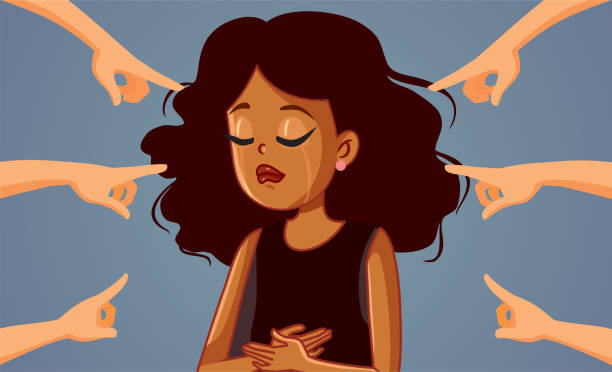
The term “Angry Black Woman” is a stereotype that portrays black women as overly aggressive.
The term “Angry Black Woman” is a stereotype that portrays black women as overly aggressive, hostile, and irrational when expressing their opinions or emotions. This stereotype is often used to discredit black women’s perspectives and dismiss their concerns. It is a harmful stereotype that perpetuates systemic oppression, marginalization, and erasure of black women’s experiences.
History of Angry Black Woman
The stereotype of the Angry Black Woman has a long history rooted in racism, sexism, and the intersection of both. It was popularized during the 19th century in the United States when black women were seen as inferior and unable to control their emotions. During the civil rights movement of the 1960s, black women were often portrayed as angry and aggressive when advocating for their rights. The stereotype continued to be perpetuated through the media and popular culture, reinforcing the notion that black women were too emotional and irrational to be taken seriously.
Impact of Angry Black Woman on the Black Community
The Angry Black Woman stereotype has a detrimental impact on black women in many ways. It erodes their self-esteem, limits their opportunities for success, and reinforces negative perceptions about their character. Black women are often expected to suppress their emotions and conform to Eurocentric beauty standards, which can lead to internalized anger, depression, and anxiety.
Impact of Angry Black Woman on the White Community
The Angry Black Woman stereotype also has an impact on the white community. It perpetuates a false narrative that black women are incapable of being rational and level-headed in professional or personal settings. This stereotype also reinforces the power dynamic between black and white women, making it more difficult for black women to assert themselves in a predominantly white society.
Influence of the phrase Angry Black Woman on Culture
The Angry Black Woman stereotype is perpetuated through various forms of media, including television shows, movies, and social media. It has become so ingrained in popular culture that it often goes unquestioned, perpetuating negative perceptions about black women’s emotions and behavior.
Why refraining from using Angry Black Woman is important
Using the term “Angry Black Woman” perpetuates harmful stereotypes about black women and reinforces systemic oppression. It is essential to recognize the harm that this stereotype causes and to refrain from using it. Instead, we should strive to understand and empathize with black women’s experiences and validate their emotions.
How to be an Ally
To be an ally to black women, it is essential to educate ourselves about the stereotypes and systemic oppression they face. We should actively listen to black women and support their efforts to challenge harmful narratives about their experiences. We must also examine our own biases and work to unlearn harmful stereotypes and behaviors.
Sources:
- Collins, P. H. (2004). Black sexual politics: African Americans, gender, and the new racism. Routledge.
- Crenshaw, K. W. (1989). Demarginalizing the intersection of race and sex: A black feminist critique of antidiscrimination doctrine, feminist theory and antiracist politics. University of Chicago Legal Forum, 139-167.
- Hooks, B. (1981). Ain’t I a woman: Black women and feminism. South End Press.